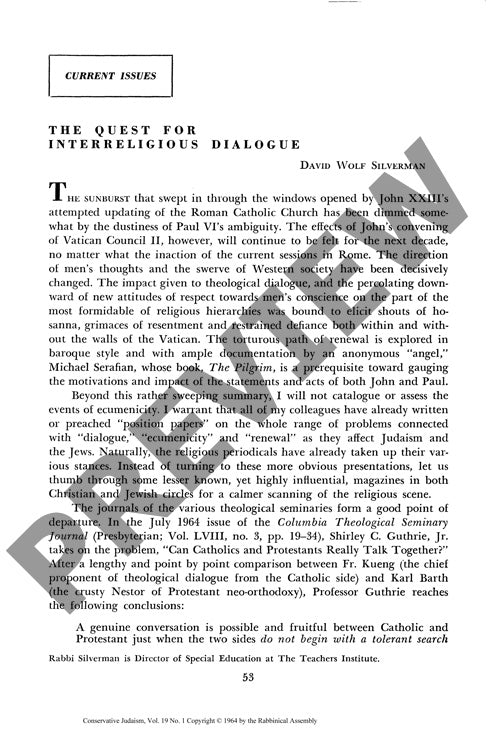The Quest for Interreligious Dialogue
Couldn't load pickup availability
The quest for meaningful interreligious dialogue intensified dramatically after Vatican Council II, as Christian denominations grappled with centuries-old divisions and the imperative to address historical injustices, particularly regarding Jewish-Christian relations. Through analysis of theological seminary journals, interfaith conversation transcripts, and ecclesiastical documents, a complex picture emerges of religious leaders navigating between tradition and progressive reform. Cardinal Suenens' groundbreaking presentations at the University of Chicago Divinity School championed historical contextualization of doctrine, unity in diversity, and experiential theological approaches, marking a significant departure from earlier rigid positions. As Protestants increasingly embraced broader Christian heritage and Catholics adopted more flexible doctrinal formulations, the Vatican's controversial attempt to repudiate the deicide charge against Jews revealed deep-seated tensions in interfaith relations. Jewish responses varied significantly, with Rabbi Soloveitchik's notable opposition to Vatican discussions highlighting the challenges of maintaining theological integrity while pursuing dialogue. The evidence suggests that successful interreligious engagement requires authentic commitment beyond secular humanism, demanding both substantive theological discourse and acknowledgment of historical wrongs, particularly Christian anti-Semitism. True dialogue emerges when participants can address fundamental theological differences while maintaining mutual respect and historical accountability.

More Information
-
Physical Description
-
Publication Information
Published 1964
ISBN
-
Publication Credits
David Silverman

